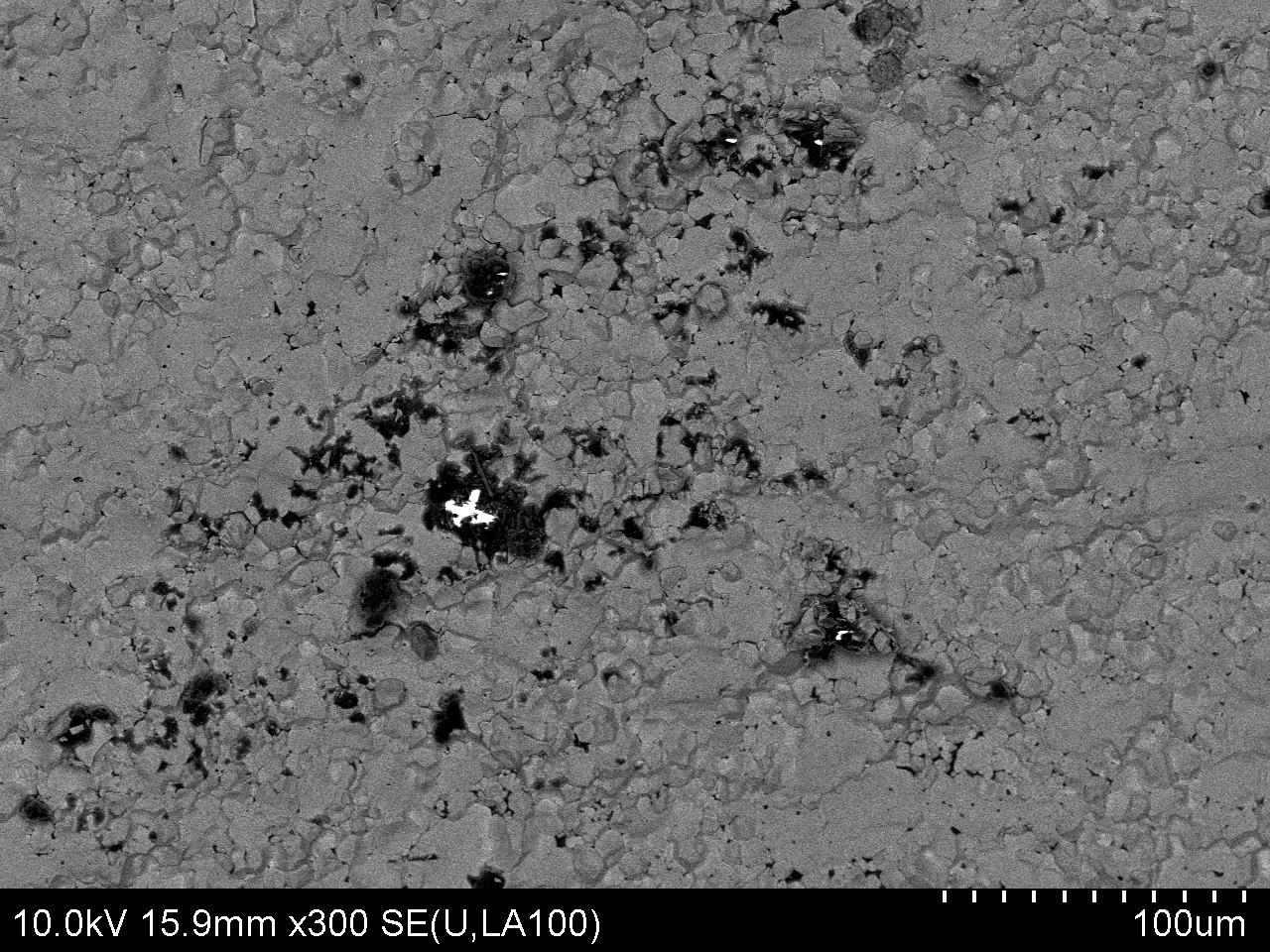Press Release
UMD Engineers Discover Root Cause of Solid-State Battery Failure
Wang group published in Nature Energy.
FOR IMMEDIATE RELEASE January 14, 2019
CONTACT:
Katie Doyle
301 405 0379
khollan3@umd.edu

The use of a lithium metal anode in rechargeable batteries could significantly increase the energy density of conventional batteries, but combined with solid electrolytes (SEs) presents a challenge due to the formation of dendrites. Dendrites – a mass of crystal resembling a crown of broccoli – form inside electrolytes, causing batteries to fail. The cause of dendrite growth in solid electrolytes remained a mystery until recently.
The University of Maryland (UMD) research team - consisting of Chunsheng Wang, a professor of Chemical and Biomolecular Engineering (ChBE); Howard Wang, a visiting research professor of Materials Science and Engineering (MSE) and Nancy Dudney of Oak Ridge National Laboratory - discovered that high electronic conductivity of solid electrolytes is the root cause of dendrite formation in solid-state batteries. If the electronic conductivity can be reduced, dendrites are less likely to form, boosting the battery’s longevity. The results of their study were published in Nature Energy on January 14, 2019. Fudong Han – a ChBE post-doctoral associate – served as the paper’s first author.
“Using a unique and powerful technique called in-situ neutron depth profiling (performed at beam line NG5 of the NIST Center for Neutron Research), we can directly see the formation of dendrites inside the solid electrolytes,” said Han.
Conventional wisdom indicates that dendrites gradually grow from one side of a battery to the other, but the Wang Group found that dendrites start to grow inside the bulk solid electrolyte, due to the fact that sulfide and oxide electrolytes have a much higher electronic conductivity than those of liquid electrolytes and LiPON.
Dendrites are essentially made of lithium metal, which is formed by the combination of lithium-ions and electrons. One of the main functions of a solid electrolyte is to conduct lithium ions - tremendous effort is being made to improve the ionic conductivity of this material - but the electronic conductivity of SEs has never been considered an issue until now.
“Solid electrolytes are lithium-ion conductors – rich in lithium-ions – so the direct formation of dendrites inside SEs indicates that there are also free electrons inside the electrolyte," said Han. "The high electronic conductivity lowers the potential inside the SEs - when the potential is lower than a critical value, dendrites begin to form."
“Future research should focus on developing methods to reduce the electronic conductivity while simultaneously increasing, or at least, maintaining, the ionic conductivity of SEs,” said Chunsheng Wang.
The results will aid in the development of safe, high-performance solid-state batteries, which can be utilized for clean energy storage in portable electronic devices (e.g., mobile phones and laptops) and electric vehicles.
This work is supported by Army Research Office, NSF, DOE and NIST.
For additional information:
Han, F., Westover, A.S., Yue, J., Fan, X., Wang, F., Chi, M., Leonard, D.N., Dudney, N.J., Wang, H., and Wang, C. (2019). “High electronic conductivity as the origin of lithium dendrite formation within solid electrolytes.” Nature Energy, DOI: 10.1038/s41560-018-0312-z.
###
About the A. James Clark School of Engineering
The University of Maryland’s A. James Clark School of Engineering is a premier program, ranked among the top 20 in the world. Located just a few miles from Washington, D.C., the Clark School is at the center of a constellation of high-tech companies and federal laboratories, offering students and faculty access to unique professional opportunities.
Our broad spectrum of academic programs, including the world’s only accredited undergraduate fire protection engineering program, is complemented by a vibrant entrepreneurial ecosystem, early hands-on educational experiences, and participation in national and international competitions.
The Clark School is leading research advancements in aerospace, bioengineering, robotics, nanotechnology, disaster resilience, energy and sustainability, and cybersecurity. From the universal product code to satellite radio, SMS text messaging to the implantable insulin pump, our students, faculty, and alumni are engineering life-changing innovations for millions. Learn more at www.eng.umd.edu.